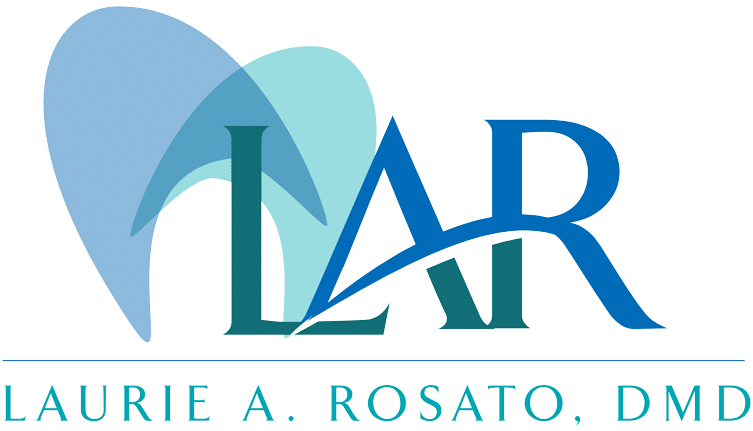General Dentistry in Concord
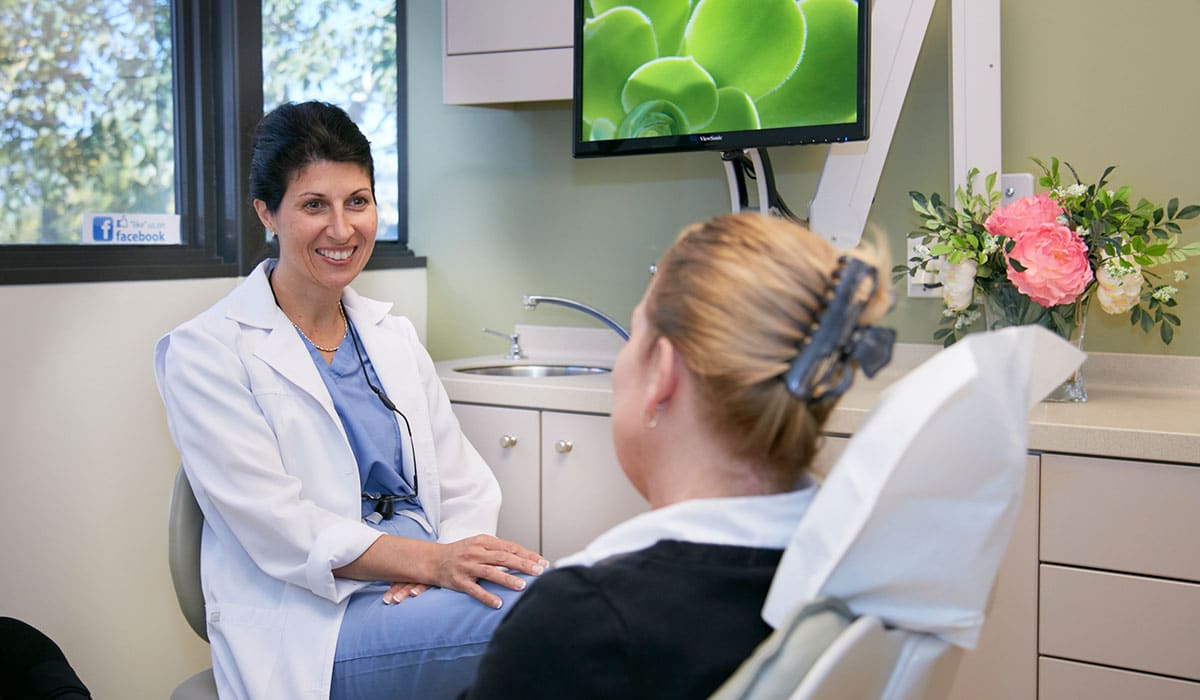
Our office provides a range of general dentistry procedures in Concord, NH. Call 603-228-9276 to schedule an appointment.
Comprehensive Evaluation / Oral Examination
An oral examination is a visual inspection of the mouth, head, and neck, performed to detect abnormalities. Radiographs allow for a more complete examination, helping the doctor to detect cavities, problems in existing dental restorations, gum and bone recession or other abnormal conditions within the mouth, head and neck area.
Dental Cleaning
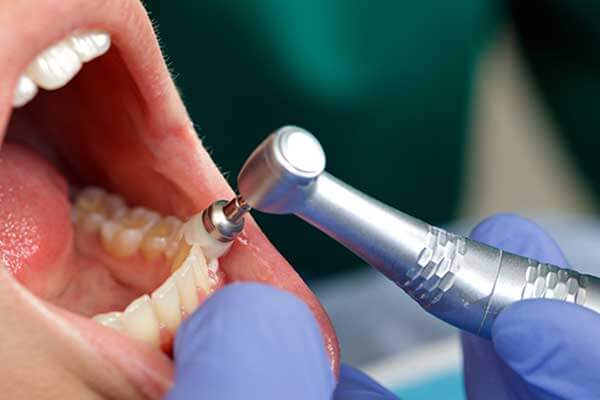
A dental cleaning, also known as an oral prophylaxis, is the removal of dental plaque and tartar (calculus) from the teeth. Specialized instruments are used to gently remove these deposits without harming the teeth. First, an ultrasonic device that emits vibrations and is cooled by water is used to loosen larger pieces of tartar. Next, hand tools are used to manually remove smaller deposits and smooth the tooth surfaces. Once all the tooth surfaces have been cleaned of tartar and plaque, the teeth are polished.
Custom Mouth Guards
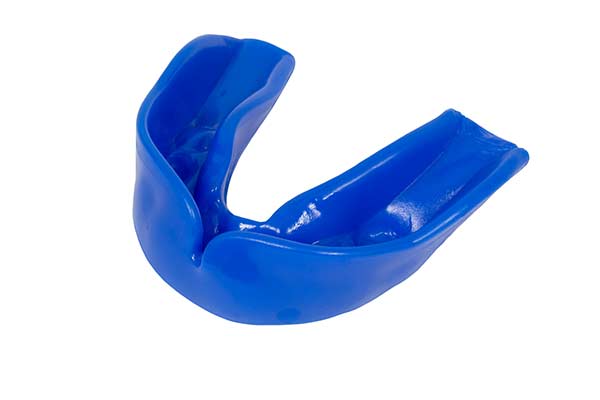
Many sports require athletes to use a mouth guard to protect their teeth while practicing and playing. Frequently used in contact sports, the mouth guard covers the gums and teeth to provide protection for lips, gums, teeth, and arches. A properly fitted mouth guard can reduce the severity of dental injuries.
Scaling and Root Planing
Scaling and root planing is a non-surgical procedure used to treat gum disease. During the scaling process, specialized dental instruments are used to remove dental plaque and calculus from beneath the gums. Planing is the procedure used to smooth the tooth roots after the scaling process. Root planing helps the gums heal and reattach themselves to a cleaner and smoother root surface.
Root Canal Treatment
Root canals are most often necessary when decay has reached the nerve of the tooth or the tooth has become infected. When root canal therapy is performed, infected or inflamed pulp is removed from the tooth chamber. The inside of the tooth is then cleaned and disinfected before being filled and sealed to limit the possibility of future infection. Soon after the root canal is performed, the tooth is restored with a dental crown or filling to protect the tooth and restore normal tooth function.
Extractions
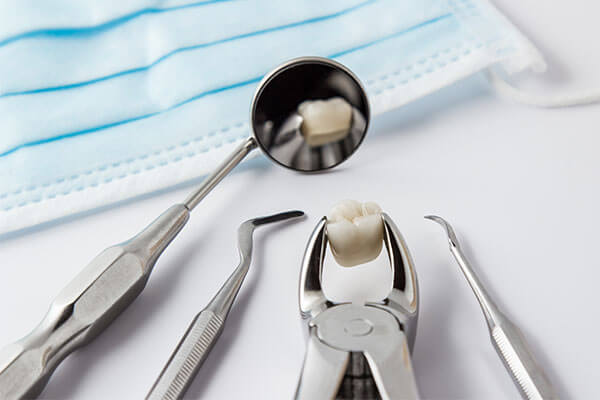
A tooth that can not be saved with restorative procedures may need to be removed. Before removal of the tooth, the area will be numbed with anesthesia. The tooth is loosened from the jawbone and surrounding ligaments and tissues with a gentle rocking motion. Once it is loose, it is gently removed. Stitches may be necessary after the removal of a tooth.
Common Questions About General Dentistry
Do You Provide Pediatric Dental Services?
We treat patients of all ages and welcome infants and children to our practice. Dr. Rosato is passionate about helping lay a foundation for excellent oral health early in life.
When Should My Child See a Dentist?
All children should see a dentist by their first birthday, or within six months of their first tooth erupting, per the American Dental Association.
What Do I Need to Bring to My Dental Appointment?
For your first appointment, please bring a list of any medications you take. If you have dental insurance, bring your insurance card or policy number with you.
Are Dental Cleanings Covered by Insurance?
Most dental insurance plans pay for all or a portion of the cost of regular dental exams and cleanings. Our staff will file insurance claims on your behalf. However, you should always check with your provider for specific coverage they provide.
Do Dental Exams Hurt?
Routine dental cleanings and exams will not hurt. During the exam and cleaning, Dr. Rosato will conduct a complete screening to look for signs of tissue change, which could indicate underlying problems. X-rays are done digitally and painlessly. Some patients with extremely sensitive teeth may feel a bit of sensitivity during the cleaning, but this is rare. Numbing agents are available to make your visit more comfortable.
Why Do I Need to See a Dentist Twice a Year?
Twice yearly exams and cleanings are essential preventative appointments. Even those who practice excellent tooth and gum care should have a regular cleaning every six months, as our dentist can remove more plaque during a visit than can be removed at home, even with twice-daily brushing. Regular dental exams also allow for early treatment of small problems before they become more complex problems.
What Dental Technologies Do You Use?
Our dental practice embraces all of the latest technological innovations. From ultra-quiet handpieces that provide less vibration and noise than a drill to digital x-rays, intraoral cameras, and laser dentistry options, our state-of-the-art practice uses dental technology to provide you with better, and more comfortable dental care.
